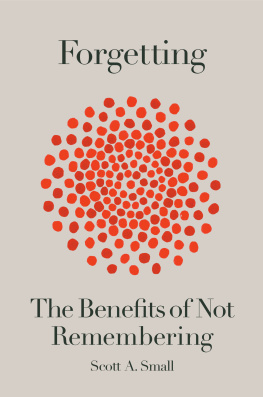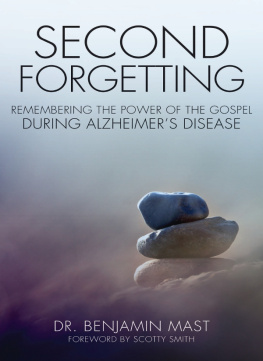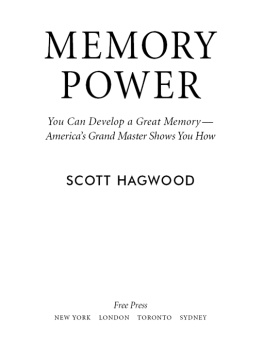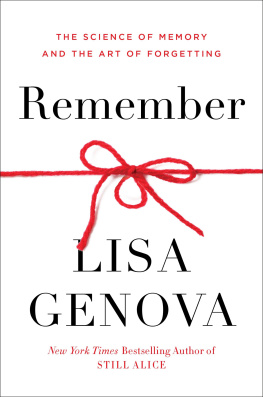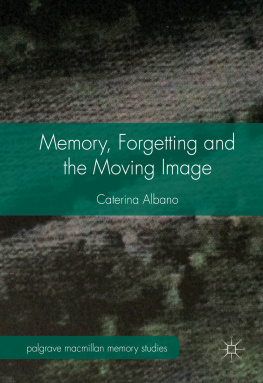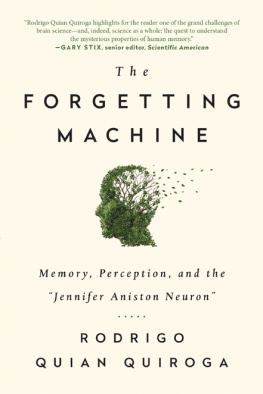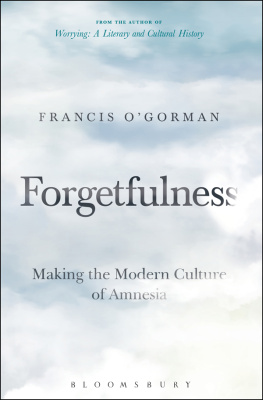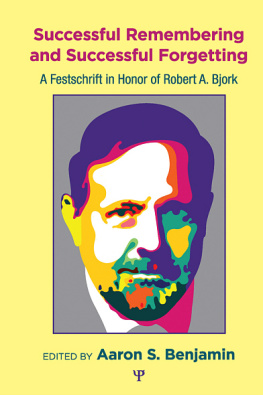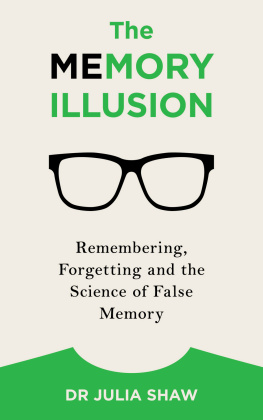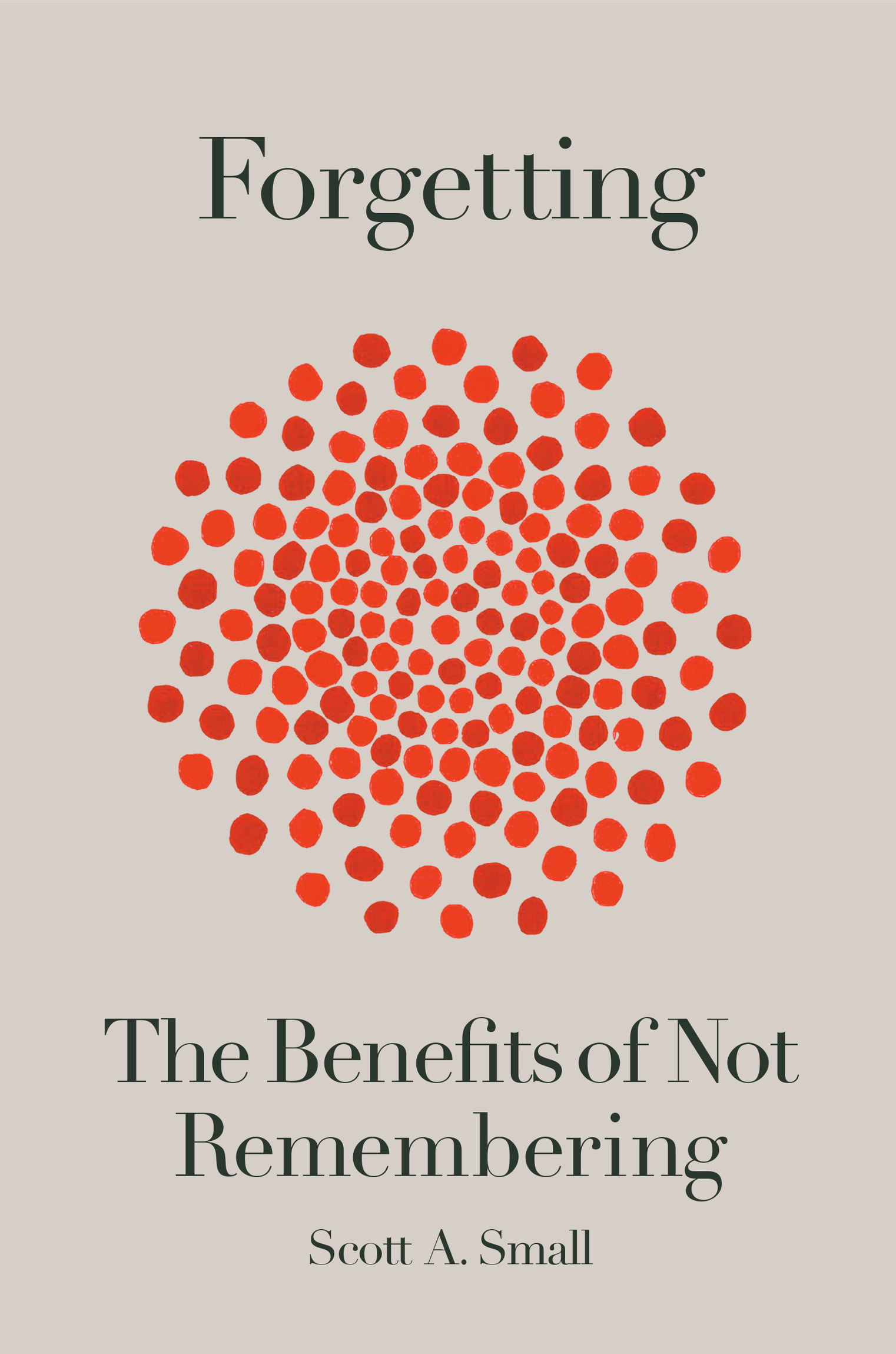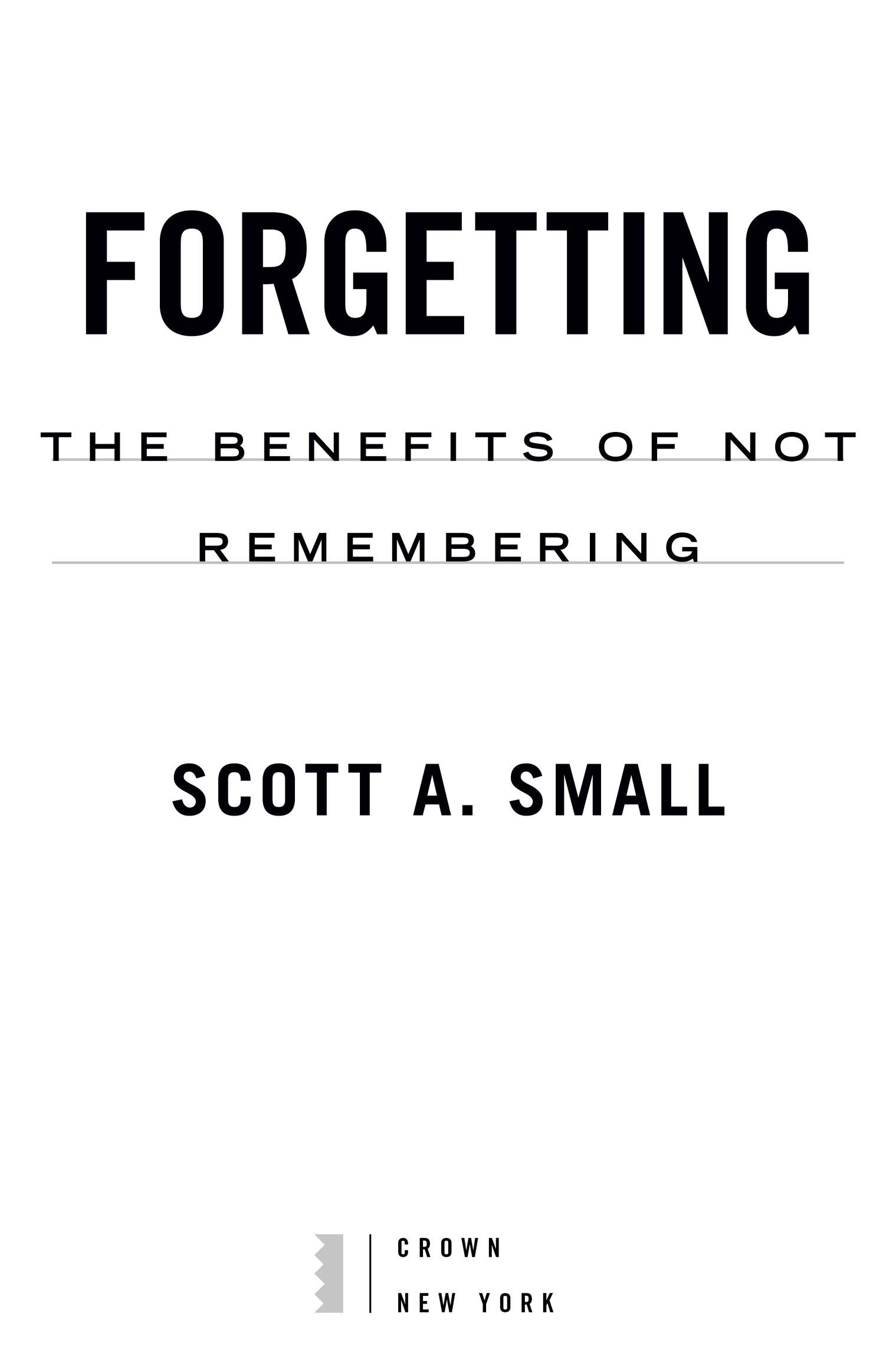Contents
Landmarks
Print Page List
Copyright 2021 by Scott Small
All rights reserved.
Published in the United States by Crown, an imprint of Random House, a division of Penguin Random House LLC, New York.
Crown and the Crown colophon are registered trademarks of Penguin Random House LLC.
The cover art is from Louise Bourgeoiss collection Ode lOubli (Ode to Forgetting), a fabric book of art Bourgeois constructed from sixty-year-old monogrammed hand towels she discovered from her 1938 wedding. Copyright The Easton Foundation/VAGA at Artists Rights Society (ARS), NY.
All illustrations by Nicoletta Barolini/Columbia University.
Library of Congress Cataloging-in-Publication Data
Names: Small, Scott A., author.
Title: Forgetting / Scott A. Small.
Description: New York: Crown, 2021. | Includes index.
Identifiers: LCCN 2021011986 (print) | LCCN 2021011987 (ebook) | ISBN 9780593136195 (hardcover) | ISBN 9780593136201 (ebook)
Subjects: LCSH: Memory disorders. | Memory. | Cognition.
Classification: LCC BF376 .S56 2021 (print) | LCC BF376 (ebook) | DDC 153.1/2dc23
LC record available at https://lccn.loc.gov/2021011986
Ebook ISBN9780593136201
crownpublishing.com
Book design by Jo Anne Metsch, adapted for ebook
Cover design: Pablo Delcan
Cover image: Louise Bourgeois, Ode lOubli (Ode to Forgetting), 2004 (detail), number 6, edition BAT; fabric and color lithograph book, unbound; 10 5/8 13 1/4 inches; The Easton Foundation/VAGA at Artists Rights Society (ARS), NY
ep_prh_5.7.0_c0_r0
Contents
When I complain of the [memory] defect of mine, they do not believe me, and reprove me, as though I accused myself for a fool.But they do me wrong; for experience, rather, daily shows us, on the contrary, that a strong memory is commonly coupled with infirm judgment.
It is not without good reason said that he who has not a good memory should never take upon him the trade of lying.
Michel de Montaigne , Essays, 1572
PROLOGUE
Funes not only remembered every leaf on every tree of every wood, but even every one of the times he had perceived or imagined it.
I suspect, nevertheless, that he was not very capable of thought. To think is to forget a difference, to generalize, to abstract.
Jorge Luis Borges , Funes, the Memorious
As a memory specialist, all I hear about is forgetting. And not just from my patients, who typically have disorders that cause pathological forgetting and are expressing a valid medical concern. I mean from nearly everyone else, the vast majority of whom are complaining about normal forgetting, the forgetting that we are born with and that naturally varies among us like height or other traits. I am not complaining about these complaints. My own forgetting is frustrating, and besides, offering compassionate advice is a privilege of doctoring. I am quite sure, in fact, that my early interest in memorytriggering my academic interests, training, and careerwas influenced by my own forgetting. Who wouldnt want to have a better memory? To perform better on exams; to remember with high fidelity books read or movies watched; to have more details at the tip of ones tongue to win over minds in intellectual debates or hearts with fun facts and poetry?
That forgetting represents a glitch in our memory systems, or a nuisance at the very least, has always been the common scientific view. Accordingly, science has primarily focused on figuring out how the brain forms, stores, and retrieves memories; how the memory snapshot is taken, processed, and cataloged. While some scientists have intuited forgettings possible benefits, the fading of memories, like musty photos in an attic, is usually considered a malfunction of the recording device or a sign of the flimsiness of the record. This standard view, in which better memory is always the noble goal, whereas forgetting is to be prevented and fought tooth and nail, has guided my training and my career.
I have been a student of memory for more than thirty-five years. As an undergraduate in experimental psychology at NYU, I wrote my first published paper and graduating thesis on the topic of how our emotions can bias what we see and how we remember. As an M.D./Ph.D. student at Columbia University, I worked in the lab of the memory researcher Eric Kandel, who in 2000 was awarded the Nobel Prize in Physiology or Medicine for his discoveries regarding how neurons in different animal models remember. And since completing a postdoctoral fellowship at Columbia on Alzheimers disease and other forms of memory failure with Richard Mayeux, a leading Alzheimers clinician and geneticist, I have been toiling away in my own lab investigating the causes of, and potentially the cures for, Alzheimers disease and other reasons for memory failure in later life.
While old dogs cant learn new tricks, its a good thing we can forget old ones, since it turns out that I, along with many other memory investigators and memory doctors, was wrong about forgetting. Recent research in neurobiology, psychology, medicine, and computer science has contributed to a clear shift in our understanding. We now know that forgetting is not just normal but beneficial to our cognitive and creative abilities, to our emotional well-being, and even to societal health.
This book is dedicated to the hundreds of patients I have tried to help throughout my career who have suffered from pathological forgetting, commonly caused by neurodegenerative disorders but also simply by aging itself. While the medical definition of pathological is often up for grabs, the easiest distinction between normal and pathological forgetting is that the latter reflects a true worsening of ones memory, a worsening that impacts the ability to fully engage in our information-laden lives. Only by observing the painful consequences of pathological forgetting in patients does normal forgetting emerge in sharp relief. Witnessing the suffering caused by Alzheimers disease inoculates against the temptation to poeticize itto say, for example, that the pathology carries a silver lining, that it is somehow good. Perhaps. But as a doctor who tries to sympathize as much as possible and is exposed to the suffering caused by pathological forgetting, I cannot abide that position. In any case, this book is not about that. It is about normal forgetting.
The question presented earlierWho wouldnt want to have a better memory?was obviously posed rhetorically. What about photographic memory, a memory system that immortalizes like a computer hard drive, where snapshots never fade in a mind that never forgets? Most of us have fantasized about this cognitive power, but I suspect many have also sensed its potential burdens. Despite occasional claims in the annals of neurology, cases of true photographic, sometimes called eidetic, memory turn out to be vanishingly rare. There are some people whose natural memory is at the superior end of the normal distribution, like extremely tall variations in height. There are experts in certain fields who depend on particular memory skills so extraordinary as to seem out of this world: memory specifically for chessboard arrangements by grand masters, sheet music by concert pianists, limb movements by professional tennis players. There are also so-called mnemonists, or memory magicians, who rely on cognitive tricks of the trade, some innate skills, and lots of practice to develop superior memories for specific information categoriesautobiographical information, numbers, names, or events. When formally tested, however, none of them, it turns out, have true photographic memories for all things. None have minds that never forget.

